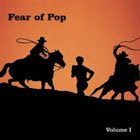 |
vs. |  |
vs. |  |
| "Say Goodbye" by Year of the Rabbit from Year of the Rabbit | "Carry It Around" by The New Kentucky Quarter from Carry It Around | "Letters to You" by Finch from What It Is to Burn |
"Say Goodbye" (10 plays at Last.fm, tied for #218): Year of the Rabbit frontman Ken Andrews is in this tournament as the leader of three different bands (the other two being Failure and On), which is pretty impressive. This band released its only album at a time when the majors briefly tried their hand at angular shimmer rock, and this closing track brought the whole thing to an incredible, if tragically destined, head. The lyrics have a nice back and forth across the verses, and Andrews had really perfected the arena version of his croon when we saw YotR play the comically undersized (and underfilled) Rave Bar in Milwaukee. Of all the bands that fit this subgenre (Failure being one, but also Hum, late-model Cave In, Shiner), I think this one is one of the few that are carried by vocals at least as much as by music, and this song is a great example of it.
"Carry It Around" (13 plays, tied for #101): This might be the most obscure track in the tournament. Madison's the New Kentucky Quarter released a couple of EPs, then broke up a short while after this one came out. This title track from their swan song is a superb piece of pop-rock that I suspect would've burned up the charts if had it found its way into a Zach Braff soundtrack. The boy-girl harmonies in the chorus are terrific, as are the slight changes to the vocal melody each time through. We saw them play at the Terrace without ever having heard them before and fell it love instantly -- if anyone has a line on their earlier releases, please let me know!
"Letters to You" (2 plays, unranked): Come to think of it, all the songs in this match-up are fairly obscure. Finch was part of an early 2000s wave of halfway decent screamo that went light on the screaming, then they put out a forgettable follow-up, split, and reformed to release a forgettable EP last year. These songs are also all really well structured -- with lesser execution that could be a bad thing, but with all three and this one in particular, it feels like the band is taking you on a tour of how the song works, and even though it's not an unprecedented setup, it sounds impeccably put-together. It this case it's things like false stops being just in the right place, like the perfect placement of decorative mouldings or something. This song also has a lot of resonance for personal historical reasons, as it came out in 2002, just as I had was going through a lot of life upheaval. It can still feel and understand it now, but it's less salient than it was then -- I've been known to scream this one out in the car in the past, but it's been a while.
VERDICT: "Letters to You" has lost a bit due to time, and it's a tough choice between the other two. I'm going with "Carry It Around," because upon close review of "Say Goodbye" it seems like it doesn't quite have the energy it once did -- I want it to be a little faster and a little harder.



